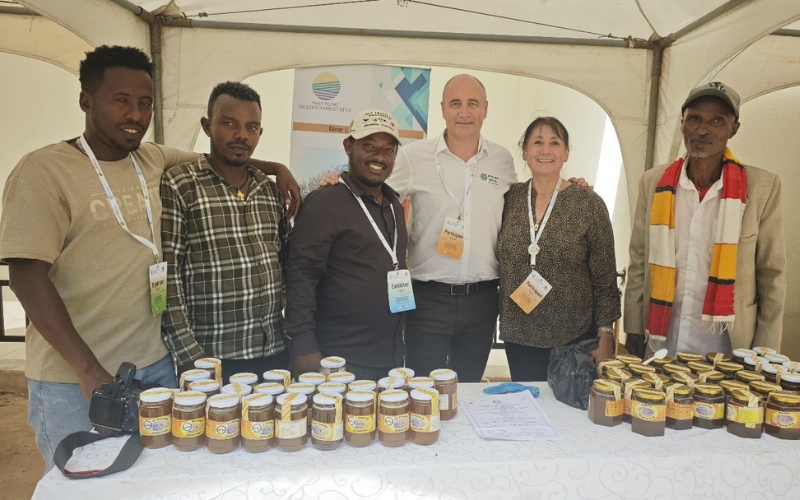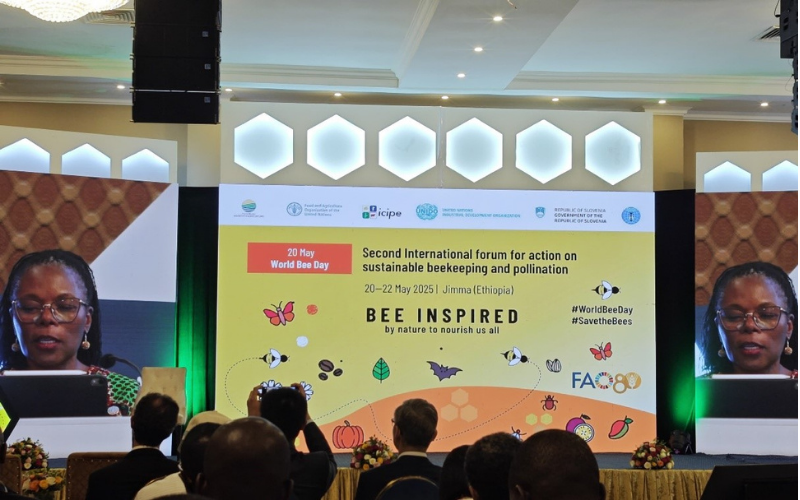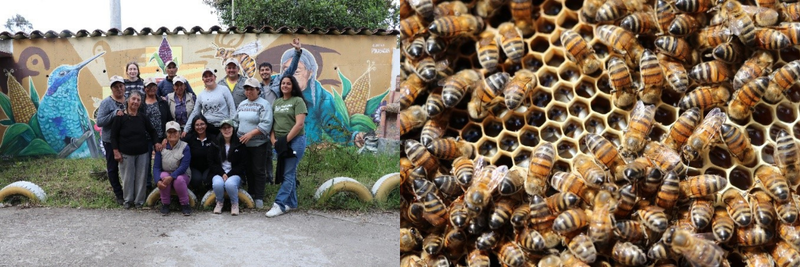
From the Andes to Africa: cross-pollination between Impulso Verde and dozens of international organizations for sustainable beekeeping

Jimma, Ethiopia | May 20, 2025
In Jimma, Ethiopian city surrounded by coffee plantations and green hills, a distinct buzzing sound could be heard. It wasn’t just the hum of resilient and industrious African bees, but also the echo of experiences brought from the high Andean forests of Colombia. There, at the heart of the Second International Forum on Sustainable Beekeeping and Pollination, the Colombian French foundation Impulso Verde Kuaspue shared its vision of a beekeeping practice that not only produces honey but also regenerates territories and strengthens community bonds.
“We want to become a reference in community beekeeping and the conservation of native stingless bees,” explained Antoine Gérigné, founder and representative of Impulso Verde.
For three days, the forum — organized by the FAO, the governments of Ethiopia and Slovenia, Apimondia, and UNIDO — served as a space for exchanging traditional knowledge, technological innovation, and public policy. Discussions focused on international cooperation, young beekeepers, agroecology, and the Sustainable Development Goals. But stories were also shared. Like that of Impulso Verde, which in southern Colombia has successfully linked beekeeping with ecological restoration and local economies in territories rich in biodiversity and resilience.
“In Ethiopia, for example, 50,000 tons of honey are produced each year, but that represents only 10% of its potential,” noted Antoine. “The challenge is not just to produce more, but to structure the entire value chain: from training in production techniques to fair marketing, including logistics and distribution. And that’s where community-based experience can make a difference.”

“Bee engaged with nature for food security”. In his opening speech, FAO Director-General QU Dongyu called bees “silent heroes” and reminded attendees that more than 20,000 species of pollinators — including butterflies, birds, and bats — support the planet’s biodiversity and food security.
Impulso Verde came to Jimma to plant alliances. Its presence in Africa is also a commitment to South-South dialogue and cooperation among territories facing similar challenges: climate change, habitat loss, rural migration, and the need for generational renewal in farming communities.

“We want to show that beekeeping is not only an activity that produces honey and other bee products, but also significantly improves the productivity of farm crops such as plantain, coffee, vegetables, and fruit, thanks to the pollination service provided by bees,” Antoine concluded. “It’s also a way to restore connections: between people and nature, between generations, between cultures. Bees feed us. Taking care of them is also taking care of life.”

Communications Fundación Impulso Verde






